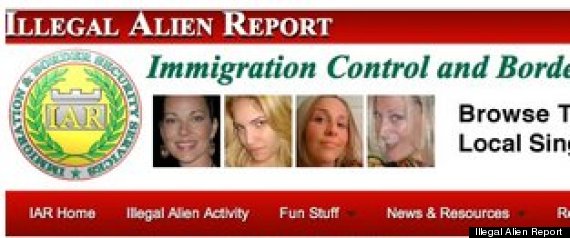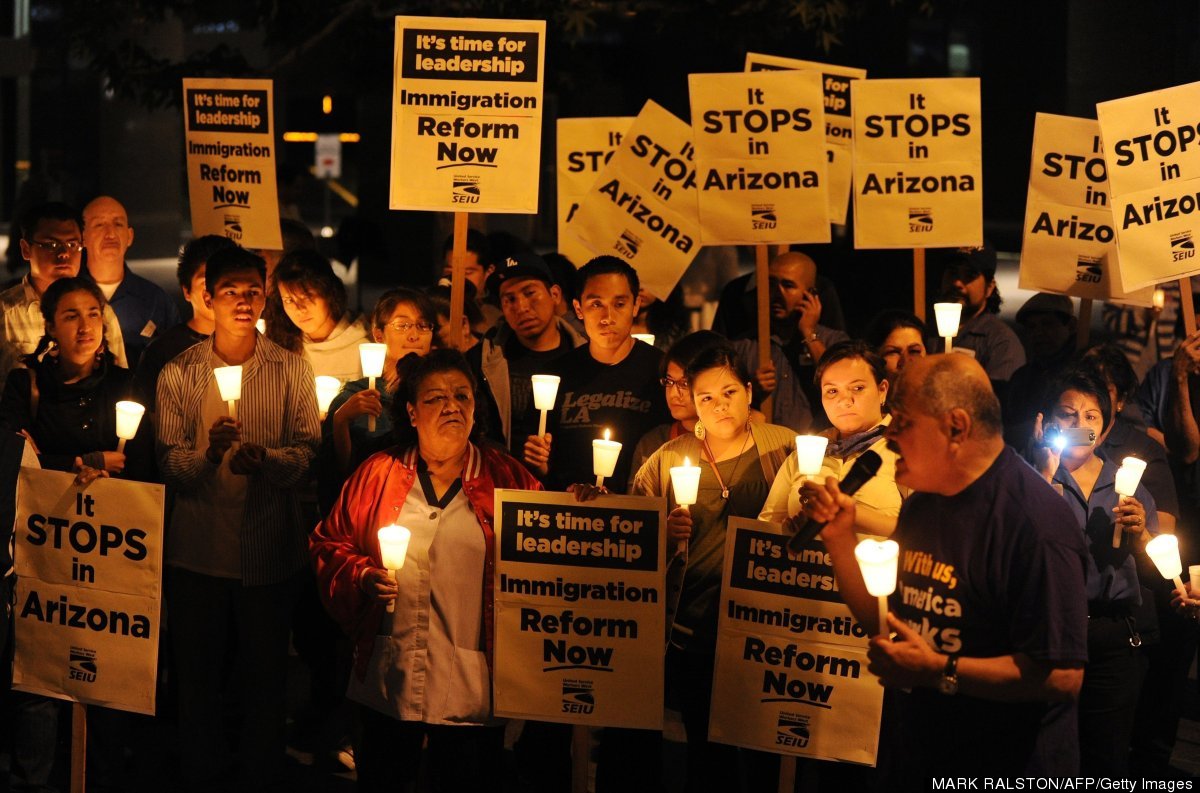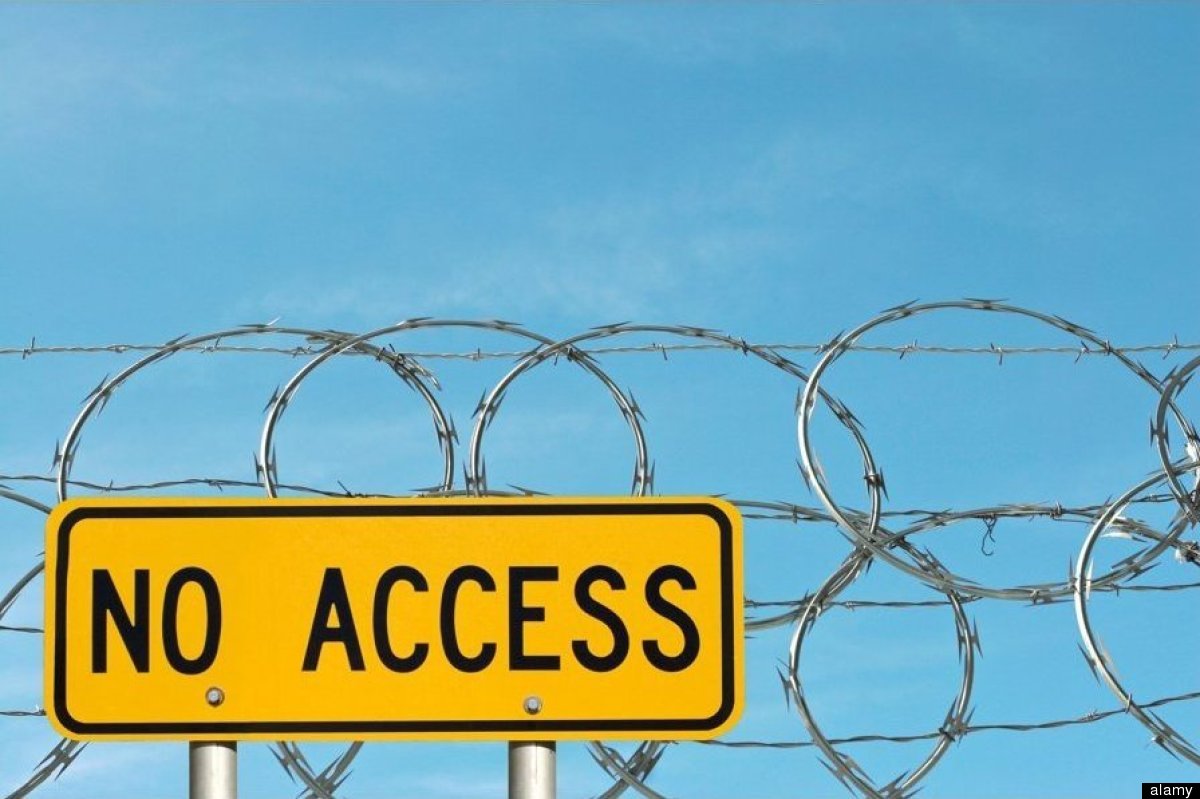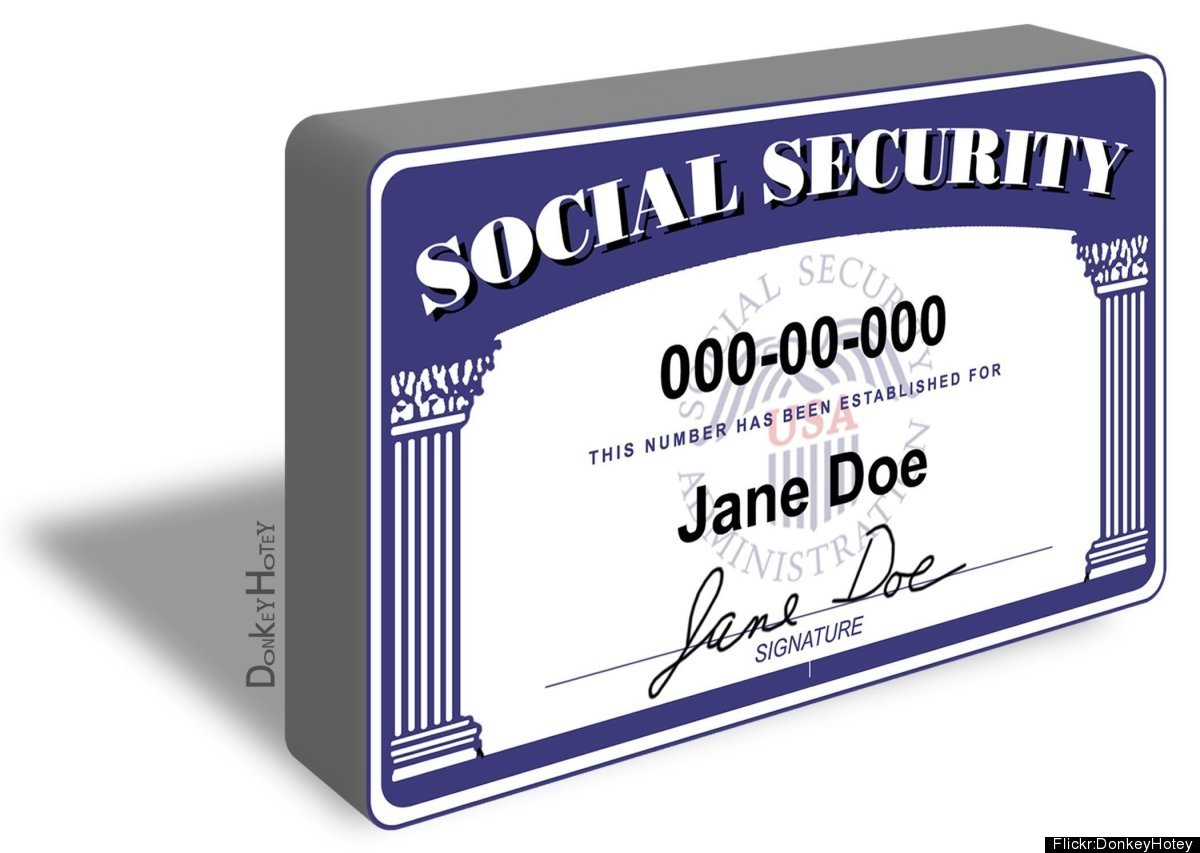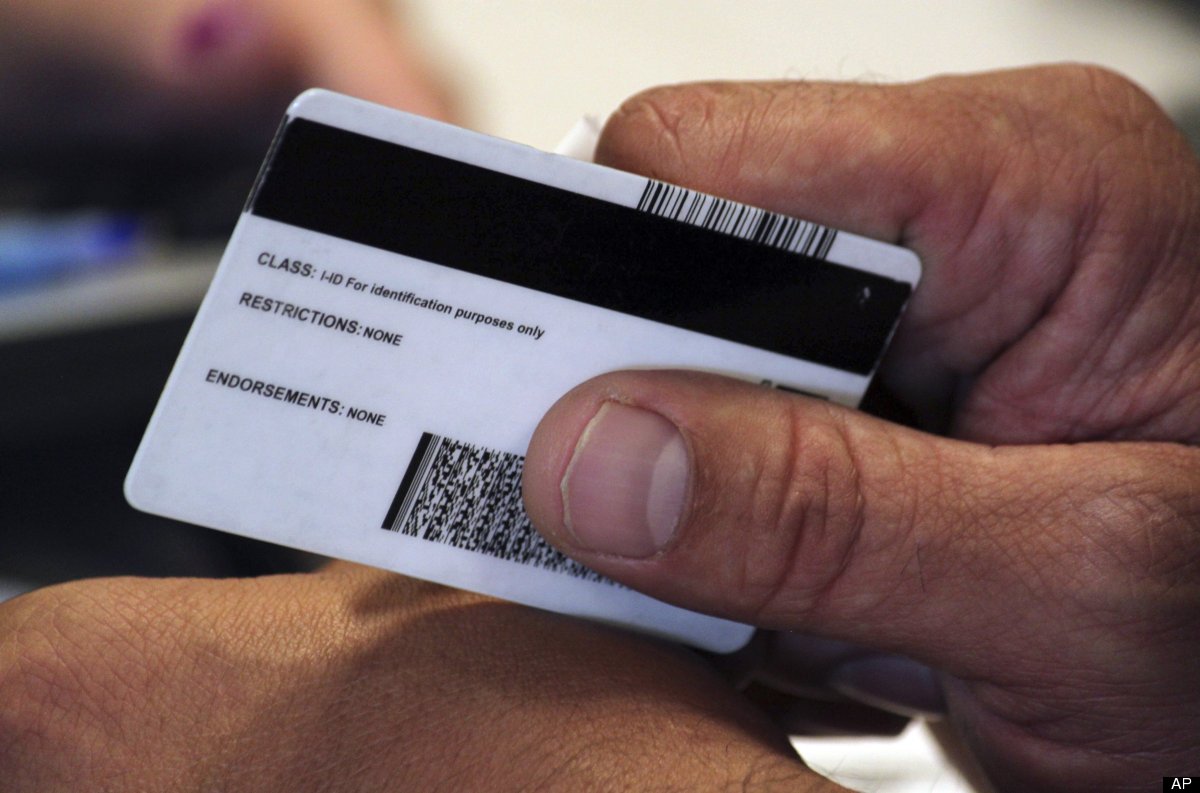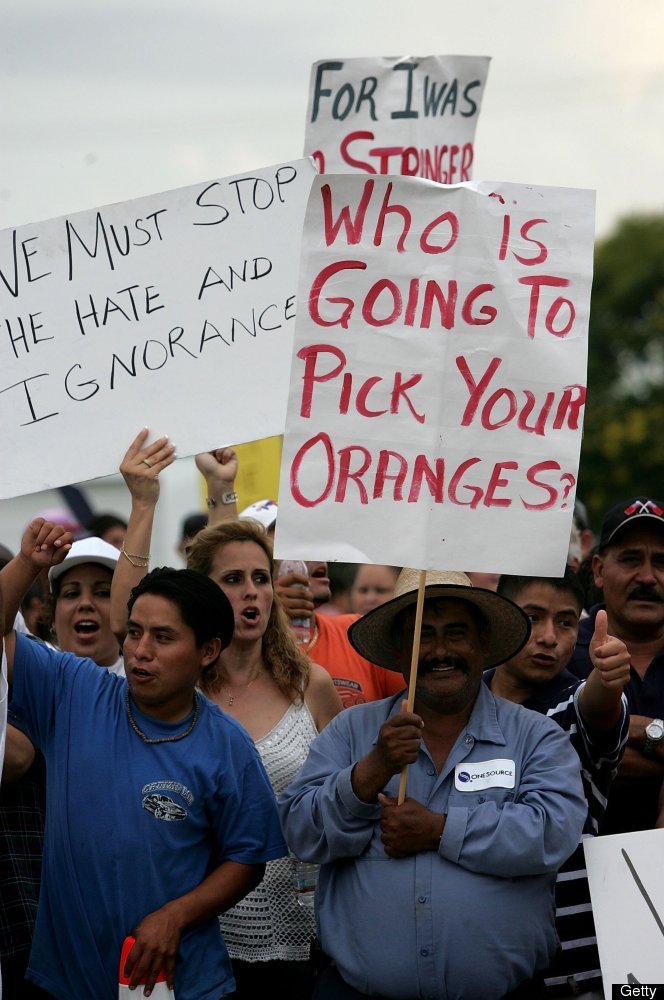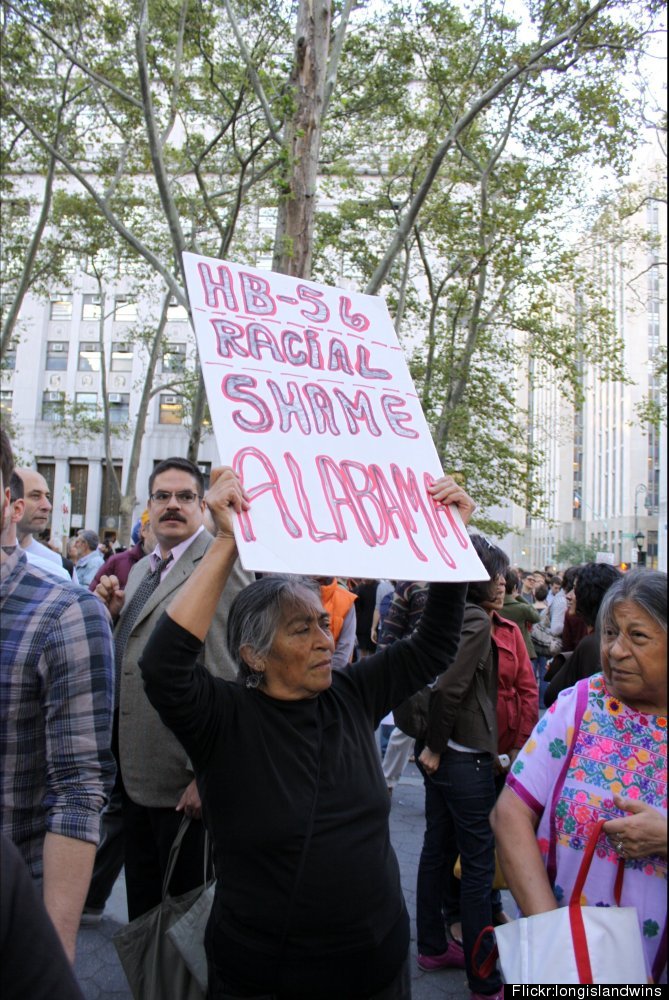Posted: 05/07/2012 1:32 pm Updated: 05/07/2012 1:48 pm
Illegal Alien Report: Immigration Control and Border Security Services
Latest Alien Activity Reports
|
|
May 9, 2012 - Welcome to Illegal Alien Report, Immigration Control and Border Security Services. Home of the International Illegal Alien and Border Security Threat Tracking System as well as other services including the Forum on Immigration and Border Security Issues, Illegal Alien Video Entertainment, Immigration News & Border Security Information, and a Directory of Immigration and Border Security Resources.
The Worst: Arizona SB 1070
The
Arizona Act made it a misdemeanor for an undocumented immigrant to be
within the state lines of Arizona without legal documents allowing their
presence in the U.S. This law has been widely criticized as xenophobic
and for encouraging racial profiling. It requires state authorities to
inquire about an individual's immigration status during an arrest when
there is "reasonable suspicion" that the individual is undocumented. The
law would allow police to detain anyone who they believe was in the
country illegally.
Status: The law was signed into law by Arizona Governor
Jan Brewer on April 23, 2010. But it has generated a swirl of
controversy and questions about its constitutionality. A federal judge
issued a ruling that blocked what critics saw as some of the law's
harshest provisions.
House: 35-31 (4/12/2011)
The Template: California Proposition 187
California's
Proposition 187 was submitted to the voters with the full support of
then Republican governor Pete Wilson. It essentially blamed undocumented
immigrants for the poor performance of the state economy in the early
1990s. The law called for cutting off benefits to undocumented
immigrants: prohibiting their access to health care, public education,
and other social services in California. It also required state
authorities to report anyone who they suspected was undocumented.
Status: The law passed with the support of 55 percent
of the voters in 1994 but declared unconstitutional 1997. The law was
killed in 1999 when a new governor, Democrat Gray Davis, refused to
appeal a judicial decision that struck down most of the law. Even though
short-lived, the legislation paved the way for harsher immigration laws
to come. On the other hand, the strong reaction from the Hispanic
community and immigration advocates propelled a drive for naturalization
of legal residents and created as many as one million new voters.
Following Arizona's Footsteps: Georgia HB 87
The controversy over Arizona's immigration law was followed by heated debate over Georgia's own law. HB 87 required government agencies and private companies to check the immigration status of applicants. This law also limited some government benefits to people who could prove their legal status. Status: Although a federal judge temporarily blocked parts of the law considered too extreme, it went into effect on July 1st. 2011. House: 113-56 Senate: 39-17
Verifying Authorized Workers: Pennsylvania HB 1502
This bill, which was approved in 2010, bans contractors and subcontractors employ undocumented workers from having state construction contracts. The bill also protects employees who report construction sites that hire illegal workers. To ensure that contractors hire legal workers, the law requires employers to use the identification verification system E-verify, based on a compilation of legally issued Social Security numbers. Status: Approved on June 8th 2010. House: 188-6 (07/08/2010) Flickr photo by DonkeyHotey
A Spin Off of Arizona: Utah HB 497
Many states tried to emulate Arizona's SB 1070 law. However, most state legislatures voted against the proposals. Utah's legislature managed to approve an immigration law based on a different argument. Taking into consideration the criticism of racial profiling in Arizona, Utah required ID cards for "guest workers" and their families. In order to get such a card workers must pay a fee and have clean records. The fees go up to $2,500 for immigrants who entered the country illegally and $1,000 for immigrants who entered the country legally but were not complying with federal immigration law, according to the LA Times. Status: Law went into effect on 03/15/2011 House: 59-15 (03/04/2011) Senate: 22-5 (03/04/2011)
The Most Comprehensive: Florida HB-1C
Florida's immigration law prohibits any restrictions on the enforcement of federal immigration law. It makes it unlawful for undocumented immigrants within the state to apply for work or work as an independent contractor. It forbids employers from hiring immigrants if they are aware of their illegal status and requires work applicants to go through the E-verify system in order to check their Social Security number. Status: effective since October 1st, 2010
The Hot Seat: Alabama HB 56
The
new immigration law in Alabama is considered the toughest in the land,
even harder than Arizona's SB 1070.
It prohibits law enforcement officers from releasing an arrested person
before his or her immigration status is determined. It does not allow
undocumented immigrants to receive any state benefit, and prohibits them
from enrolling in public colleges, applying for work or soliciting work
in a public space. The law also prohibits landlords from renting
property to undocumented immigrants, and employers from hiring them. It
requires residents to prove they are citizens before they become
eligible to vote. The law asked every school in the state to submit an
annual report with the number of presumed undocumented students, but
this part, along with others, were suspended by federal courts.
Status: Approved June 2nd, 2011
House: 73-28 (04/05/2011)
Senate: 23-11 (05/05/2011)
Flickr photo by longislandwins
